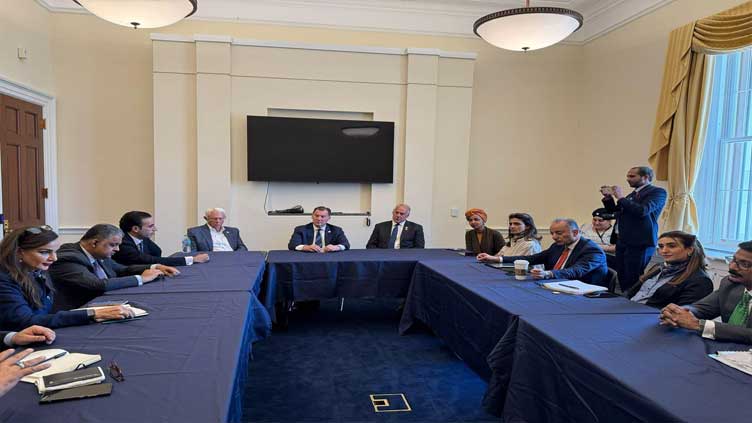Bilawal warns India's water blockade could trigger nuclear-level conflict

Pakistan
India’s actions on the Indus Waters Treaty threaten regional stability, says PPP Chairman
WASHINGTON (Web Desk) - PPP Chairman Bilawal Bhutto-Zardari issued a grave warning on the global stage, stating that India’s suspension of the Indus Waters Treaty (IWT) could spark the world’s first “nuclear water war.”
Speaking at the Middle East Institute in Washington, Bilawal stressed that water, once a symbol of cooperation, was now becoming a trigger for conflict due to India’s recent actions.
“Water wars were once just a theory,” Bilawal said. “But by shutting off Pakistan’s water supply, India is laying the foundations for an existential conflict — one that could escalate to nuclear proportions.”
— BilawalBhuttoZardari (@BBhuttoZardari) June 4, 2025
The IWT, a historic agreement between India and Pakistan brokered in 1960, has remained one of the few consistent diplomatic frameworks between the two nations. However, following the April 22 Pahalgam attack in Indian-occupied Kashmir, New Delhi put the treaty in abeyance, further souring ties.
In response, Pakistan has suspended all bilateral agreements with India, including the Simla Agreement, and closed the Wagah border while halting all trade activities with New Delhi.
Global Outreach for Peace and Accountability
Pakistan has launched an extensive international diplomatic campaign to present its perspective and challenge India’s growing influence in global forums.
Bilawal is leading a high-level delegation — including Hina Rabbani Khar, Khurram Dastgir, Sherry Rehman, and other senior envoys — to key capitals like Washington, London, and Brussels.
“Our message is simple,” said Bilawal. “We want peace. We need your help. But peace must be rooted in justice, and justice begins with abiding by treaties.”
He emphasised that disrupting water flow is not just a regional issue but a dangerous global precedent. “If India can do this, any upper riparian country could unilaterally strangle its neighbour,” he warned.
India Must Recommit to Treaties for Talks to Resume
Bilawal made it clear that for any new arrangements or dialogues to begin, India must first return to the commitments it already made under the IWT.
“You can’t expect peace while violating old agreements,” he stated. “The IWT must be respected. Only then can we move forward with hope for new understandings.”
He condemned India’s refusal to cooperate on terrorism investigations, including rejecting Pakistan’s offer to jointly probe the Pahalgam attack. “India has shut every door to peace. We won’t reciprocate with silence—we’ll take our case to the world.”
Hope Beyond Hostility
Despite the growing tension, Bilawal reaffirmed that Pakistan remains committed to peace and cooperation.
“If India and Pakistan worked together, we could eliminate terrorism, bring prosperity to Kashmir, and face the climate crisis head-on,” he said. “But if we fail, the blame for the devastation will rest squarely at Narendra Modi’s doorstep.”
He added with conviction, “I will not damn future generations to fight over water. I reject the politics of hate. We can still choose peace.”
Bilawal’s address ended with a call for global leadership to act before it’s too late. “The world must intervene—not for Pakistan’s sake alone—but for the sake of global stability. Because if the first nuclear war starts over water, it won’t end at one river.”


